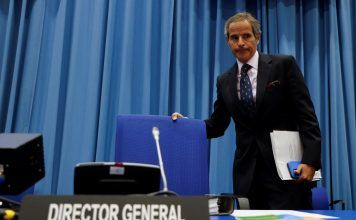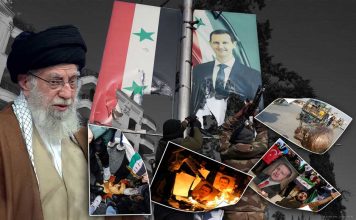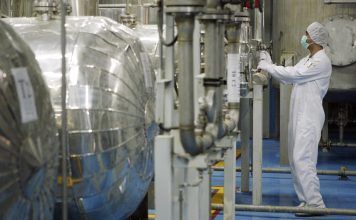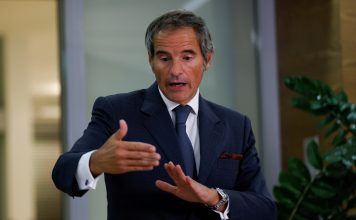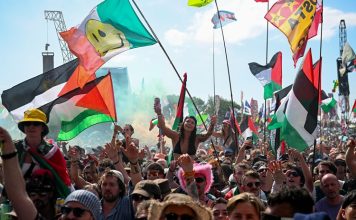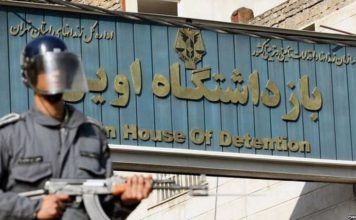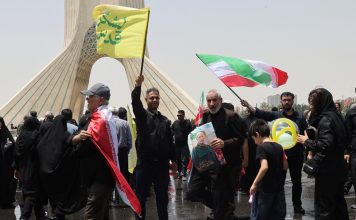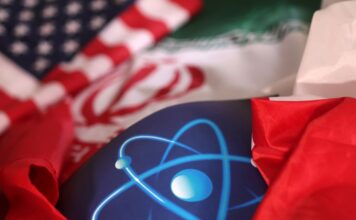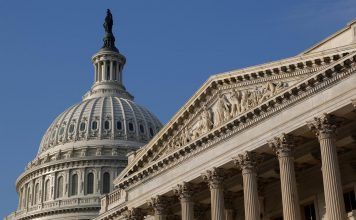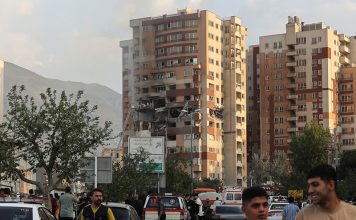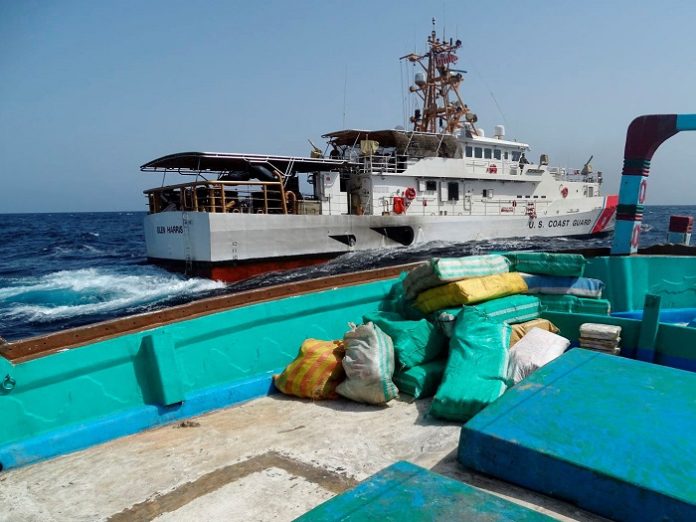
By Kayhan Life Staff
Reports from Western and regional intelligence agencies suggest that the Islamic Republic, with the help of its paramilitary partners, is playing a significant role in drug trafficking networks operating in the Middle East and in the West.
Investigations point to a significant increase in the transfer of heavy shipments of narcotics from Iran to Arab countries as well as to Southeast Asia and Europe.
[aesop_image img=”https://kayhanlife.com/wp-content/uploads/2023/07/heroein-1.jpg” panorama=”off” credit=”From Afghanistan via Iran. KL./” align=”center” lightbox=”on” captionsrc=”custom” captionposition=”left” revealfx=”off” overlay_revealfx=”off”]
The authorities of the Islamic Republic blame Western governments. Ahmadreza Radan, the chief of police of the Islamic Republic — who is on international sanctions due to human rights violations – has said: “Sanctions on Iran’s activities have cast a shadow on Iran’s efforts to combat drug trafficking, and this is detrimental to European countries.”
Meanwhile, Ahmad Vahidi, Iran’s Minister of Interior — who is also on the sanctions list for repressing and killing people and committing human rights violations – has accused Western banks of carrying out “money laundering” with “drug money”.
Dr. Amir Hamidi is an international terrorism expert and one of the special agents in “Project Cassandra,” a secret investigation project by the Drug Enforcement Agency (DEA) on the smuggling and money laundering activities of Lebanon’s Hezbollah which began in 2008. In a recent interview with Kayhan Life, Dr. Hamidi identified drug trafficking as one of the main sources of income for the Islamic Revolutionary Guards Corps.
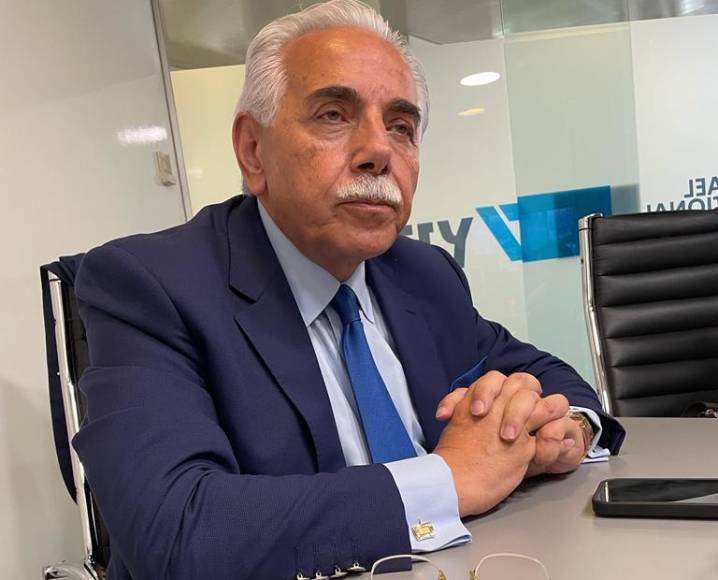
While the Iranian government is busy seeking some form of understanding and agreement with the US, there are reports that drug trafficking revenues are being used to replace some of the revenues that have been affected by sanctions.
I believe it is unlikely that the Iranian regime will cease terrorist activities and accept all the terms of the JCPOA [Joint Comprehensive Plan of Action, the Iranian nuclear deal] and sit at the negotiating table, as they are neither adept at statecraft nor diplomacy. Essentially, they act as if they no longer have a central government. They are bankrupt in every sense. This structural failure is one of the signs of collapse, and the fact that a government directly engages in drug trafficking through its agents is another sign of bankruptcy.
There is ample evidence that the Iranian regime, especially the IRGC and Hezbollah, play a significant role in the global drug trafficking network. One of the most important sources of income for the Islamic Republic is the transportation of opium, heroin, cocaine, and methamphetamine (crystal meth) from one place to another.
On the other hand, one of the sustainable sources of foreign currency flow is the pharmaceutical trade, which is dependent on raw materials. Drug trafficking is one of the most profitable activities for the Islamic Republic. Approximately 80 percent of the world’s heroin comes from Afghanistan, and the Islamic Republic strives to maintain good relations with the Taliban under any circumstances. At the same time, the Islamic Republic partners with everyone from the Albanian smuggling mafia to the Latin American drug cartels.
Jordanian Army Says It Downs a Drone Carrying Drugs Smuggled by Pro-Iran Militia Groups in Syria
There is no doubt that the Supreme Leader [Ali Khamenei] is aware of the situation. The drug trade has dual benefits for the Islamic Republic: one is access to foreign currency and financing of the Revolutionary Guards and paramilitary forces; and the other is the narco-jihad against Western countries, primarily the United States.
There is abundant evidence that Hezbollah cooperates with drug gangs in Venezuela and Brazil to transport cocaine to America, Europe, and Iran for sale.
In September 2021, according to the BBC World Network, India announced the seizure of three tons of Afghan heroin smuggled from Bandar Abbas to the Indian port of Mundra. The value of this shipment was $2.7 billion.
ANALYSIS: A Marriage of Convenience Bolsters Iran’s Mideast Presence
In Iran, unauthorized local docks are used for drug trade. Mafia gangs affiliated with the government also import all kinds of alcoholic beverages and electronic equipment from there, while drugs and weapons are exported. Over 80 such docks have been identified in provinces such as Hormozgan, Bushehr, Sistan and Baluchestan, Khuzestan, and even Mazandaran in the north of Iran.
In the summer of 2011, then Iranian President Mahmoud Ahmadinejad, in an address to Our own smuggler brothers,” emphasized the need to close illegal borders, and stated that no one should be immune. He added that if a product was related to defense, security, or information, there was no problem in importing it across legal borders. He added that no ministry had the authority to have a dock or border outside of customs control.
In an interview with the Times, Sajjad Haqpanah, a former IRGC intelligence commander, revealed that drug trafficking was widespread among IRGC commanders, and some of them were directly involved.
He explained the process of converting Afghan opium into heroin and morphine inside Iran by the IRGC, which is then exported using their own shipping and airline companies.
The US Treasury has listed Brigadier General Gholamreza Baghbani, the commander of IRGC’s Quds Force in Zahedan city, as a drug trafficker. In addition, the US government accuses Baghbani of allowing Afghan traffickers to smuggle heroin into Iran in exchange for their assistance in delivering arms to the Taliban.
According to the Times, drug trafficking generates billions of dollars annually for the Revolutionary Guards, which has a monopoly on drug trafficking in Iran and is connected to international criminal networks.
Numerous Iranians have been arrested in Malaysia and Thailand in recent years for drug trafficking, particularly crystal meth, with many confessing to being managed and directed by IRGC personnel.
One wonders whether the revenue from the drug trade partially compensates for the gaps in oil income?
Observers question how the Islamic Republic, despite difficult economic conditions, can afford such significant expenses as funding instability in the region and the spread of terrorism, as well as maintaining an extensive network of agents in the West.
The IRGC controls a vast business empire that includes the drug trade. Through Hezbollah, the Islamic Republic maintains connections with drug traffickers in Latin America.
In March 2012, the US Treasury identified Gholamreza Baghbani, a member of the Quds Force, as the key figure in the export of heroin to the West. The investigation revealed cooperation between Baghbani and certain Taliban commanders, with funds from the drug trade financing weapons purchases.
The actions of the Islamic Republic align with those of terrorist organizations. Al Qaeda, the Taliban, and their affiliated cells largely financed the Madrid train bombings in March 2004 using drug proceeds, particularly from the sale of cannabis and MDMA.
In 2008, the US Drug Enforcement Administration initiated “Project Cassandra,” a covert operation focused on gathering intelligence from Hezbollah operations. Agents tracked the transportation of thousands of kilos of cocaine from sources in South and Central America to America, West Africa, and Europe. The investigation linked Hezbollah agent Abdullah Safiuddin to contacts with the Islamic Republic. In 2020, Adel al-Zabayar, a Venezuelan citizen of Syrian descent, was arrested in New York for smuggling cocaine and firearms for Hamas and Hezbollah. In April, Andrew Fahey was arrested in the Virgin Islands in Miami for drug trafficking. He used his position as port manager to import three thousand pounds of cocaine, smuggled by Lebanese Hezbollah operatives, for distribution in Florida and the Caribbean.
Houthi rebels in Yemen are financed through arms and drug trafficking, with Iran the leading supporter of terrorism worldwide. The Islamic Republic oppresses its people and is also involved in drug smuggling and production within its borders, causing widespread addiction among families. The price of drugs in Iran has risen the least compared to other commodities.
Despite investigations and evidence pointing to the government’s role in drug trafficking, it still manages to access dollars to sustain its repressive and terrorist activities?
Only an alliance between America’s partners and the people of Iran, with the support of the international community, can bring about a change in the situation. As long as the mullahs remain in power, the region will continue to experience unrest, instability, crime, and terrorism. Although the Islamic Republic lacks the military capability to confront America and Israel directly, it can still inflict harm through terrorist tactics and smuggling. This is why the removal of the IRGC from the American terrorist organization list was opposed: Global terrorism, drug trafficking, and organized crime have become increasingly intertwined.
From Cassandra Project to Shoshana Mission: Interview with Dr. Amir Hamidi

